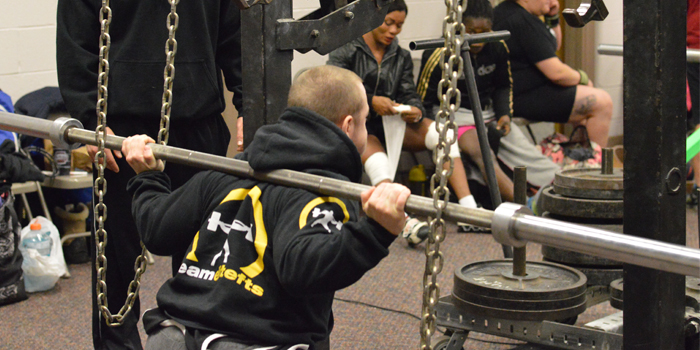
In today's powerlifting world, we're all about the big lifts. The world record performances and single lifts are absolutely outstanding and powerlifting is seeing some great growth and improvements across the board. I often get asked how I manage to put together such great, consistent meets. I'm about to break down what I think it takes to put together your best meet performance. While most of this seems like common sense, apparently it isn't, because I still see lifters coming up short and apologizing on social media (I'm still trying to figure out why they apologize). Bust out the pen and paper, and I'll help you hit a PR total the next time you take the platform.
1. Mental Preparation
This is the most overlooked part of powerlifting. Everyone is looking for the magic program, supplements, diet protocol, and gear to get their total to keep moving. While some of these can certainly help, no one is talking about what they are doing to mentally prep for competition.
This is something I take dear to my heart, as I've had a few sport psychology classes in college and I always take away something that I can either apply to my clients or to myself. The mind is a powerful tool, and what you can envision and truly experience, you can make happen with enough time and training.
Yes, you can train your mind. Teammate Bryan Mann has written extensive articles on mental preparation and training.
It starts with finding some material and just reading and absorbing it. There are dozens of amazing books to get you started, so which one you pick doesn't really matter. What does matter is that you pick one up. I make it an effort to read a new book during every meet prep. I usually have it finished within a month or faster, and then I have the rest of the prep to apply what I've read to my training and meet day strategy.
See yourself hitting the lifts you want to hit. Feel the knurling, the knee wraps going around your knees, and smell the ammonia before your final attempt. Get in the moment like you would on meet day. The key is to control your emotions. It's great to get fired up, but getting too fired up will still result in a miss in most cases. Bottle that feeling up and control it and use it on meet day. Make it so you've executed the lift you want to hit hundreds of times.
The best time to do this is prior to bed when the lights are out, it's quiet, and you can give it full attention.
2. Nutrition - During Training and Meet Day
I'm honestly fed up with the "eat clean" crowd. You know why? THIS ISN'T NEWS. I don't know why it's so cool for you to post on Instagram how you are eating healthy food. We see it all the time how important nutrition is for athletes in the NFL and NBA, but for some reason people think that being a powerlifter means you can eat shit and progress and bring our best. The crowd that is pushing the healthy food isn't spewing anything new. Look back in the 70's and 80's and how those guys were eating. It was great, whole food, and they didn't brag about it. They knew if they wanted to bring their best that nutrition was a key factor.
Sure, there will be days when you need to get in some "extra calories," but generally speaking your nutrition needs to match your goals. We don't need to be bodybuilder shredded, but being lean and packing as much muscle on a frame without useless weight is only an advantage. I personally eat pretty well year round, because I can train harder and recover better. Between meets I can maintain high base levels of strength without too much effort because I'm not eating McDonalds for lunch with Oreo's for dessert.
Give your body the fuel it needs to see the results you want. If you're eating like shit and your joints hurt and your lifts aren't moving, there is a correlation there. I personally don't have any issues and I attribute this to solid nutrition. It's not that hard, and it doesn't require an Instagram post showing how dedicated you are. Your lifts and PR's will do that for you.
On meet day, bring your same nutritional plan with you. I understand that if you cut weight you may need to refuel with some "bad" calories, but still getting your hydration and nutrition down is vital. I know exactly what to do immediately after weigh ins, how much liquid I need to ingest, how to space my meals, approximately how much food (quantity) it takes, and what supplements to use and where to promote optimal levels of electrolyte balance and glycogen retention. Get this figured out by having test runs in off season and note what is working and what isn't. We see it all too often with people cramping and not having enough energy to get through the meet. It's unacceptable and completely preventable if you take care of all this ahead of time. I've never had an issue in this area because I took the time to do test runs on myself.
3. Have The Right Support System
While powerlifting is an individual sport, it's just as much a team sport on the back end. A great meet performance is directly tied to your handlers and training partners. Having the right people training with you and keeping you accountable will have you come into meet day with realistic and obtainable attempts. If you're squatting high during training, make sure your training partners are relaying this to you and make the adjustments. Use them to come dialed in and know you gave it your best because they made sure you were up to par with the rules and were hitting meet worthy lifts in the gym. It can be humbling, but having a training partner tell me I need to work on a particular aspect is honest and only going to help moving forward and on the platform.
As for your handlers, bring someone that is going to cater your every need. I've been blessed to have amazing people help me at meets. They load my bars, get my drinks, wrap my knees, help me make smart attempts, and tell me when I need to sit the hell down. Listen to your handler as much as possible. You, the lifter, are there to lift. Have your handler do nearly everything else for you. It sounds selfish, yes, but your handler will understand and know that's what they would want on their meet day. While there are only nine lifts on the day, every bit of energy you have needs to go to those nine lifts.
There is also friends and family. If they can make it to your meet to support you, that is great. If not, make sure that they are also supporting you when you aren't training or at the meet. Have them help you manage stress levels, keep you positive and optimistic, and most importantly that support your efforts and desire to compete at a high level. My family and friends understand when I turn down weekend events to train for a meet. It sucks I can't go out and drink, but they understand and keep me accountable by reinforcing that what I may do that evening isn't going to help my training or meet day performance. It seems so little, but when it piles up over 12 weeks, it can be the difference between making and missing that third attempt.
4. Get Every Pound You Can
This is probably one of the most important parts of powerlifting on meet day: autoregulation. Only you know yourself best, and it's pivotal on meet day that you are honest with yourself on where your strength is and how the attempts are feeling and moving. While consulting with your handler(s) can come into play, only you know how it truly felt. If you had a great meet prep cycle and your opener and second attempts are smoke shows, be honest and figure out what you can truly hit on your third attempt. Getting every pound you can going into deadlifts will help you make smarter jumps at the end when it matters. Only getting one attempt in on a lift can really put you in a bad position and make it a struggle to hit a PR total at the end of the day. If you can get two solid attempts in, you have wiggle room on your third.
I'd also like to bring momentum in to this. Nothing feels better than going 3/3 on squats and going into the bench press with positive momentum. You feel good, you've probably hit a PR, or very close, and you've set yourself up mentally to keep the ball rolling. The longer you can keep this going the better. It sucks to be in the dumps because you're barely in the meet. You're thinking what you're going to have to do to get a PR total now between the other six attempts, and will probably have to be a bit more aggressive. Hit good solid attempts that are there for that day. Even if it's not your day, if you lift smart and take the right weights you can still walk away with a PR total in most cases. It's very much like a basketball player with field goals. When they are building momentum they get hot and keep the streak going, but if they take too many three's and keep missing their confidence drops and they end up having a 2/11 game with seven points. Open light, and finish heavy.
5. Know Your Surroundings
Many meets are going to be out of town for you, and it's paramount that you are as comfortable as possible. Do your homework early and find good eating places, where you're going stay, where the nearest sauna is, and even check out the meet venue before meet day. Get to know what is around you and what your options are. Even knowing how far away the warm up room is and the bathrooms will make your stress that much less. Try to find a location that you are going to set up camp at in the warm up room that you feel is going to be best for you and get there early so you can snag it. I like to pick the warm up area closest to the platform and make sure I have a few chairs that are "mine" for me and my handlers. I want to be able to sit down during my warm ups and watch the others, so I can jump in when I need to and not need to stand around. Try to also find the flight list and get that figured out to see when you will need to warm up to have ample time and not be rushed. Then relay all this to your handler(s) so you are all on the same page.
6. Programming/Training
I intentionally saved this one for towards the end, as I think many still think this is the key to having a PR day on the platform. While your meet training cycle is incredibly important, the style of programming you go with really isn't all THAT important. No matter what program you choose (or if you get a program from a coach), what matters most is that you give each session it's full undivided attention. Take each session day by day, and don't look forward any more than you need to. When you have an off/rest day, focus on being off and rested. I can't say this enough. Getting yourself pumped up for a heavy squat day a week away is a waste of time. You have no idea how you are going to feel, what life stressors may be thrown at you, or even if you can make that particular session the day you are planning on. Focus on the present, and the future will be a success.
I would also like to add that you need to set your openers, and possibly even your second attempts well in advance. Why? Your openers need to be almost automatic on meet day. I tell all my clients and lifters, this should be your "free space." Take it, crush it, and get the hell off the platform. NOW, the meet starts. How many people do you see missing openers and having to retake it? Get in the meet and then start going after weights. Setting your openers early will let you know if they are good or not. I typically can hit an opener about any time of the year, with no meet prep. On meet day, it's going to feel easy after a deload, peak, and a ton of fuel after weigh-ins.
7. Remember Why
My last tid bit to help you succeed on meet day is to ask yourself, "Why am I here?"
This answer is totally individual, but only you should know the true answer and it needs to be your motivation for prep and the meet, whether it is to hit a PR lift, win your weight class, win the meet, or even just finish the meet..
Remember why you wanted to get on the platform and see what you've got. Use this as your theme when you are waiting in the hole and getting mentally ready. This is your five minutes to cut out all the other bullshit in your life, and do what you enjoy. Dave likes to call it "The Void," but whatever you want to call it, you need to harness that (see #1). If you approach each attempt like this, you'll be locked in and little things won't matter for that brief point in time.
Closing Thoughts
While preparing for a meet is no easy task, there is a reason why you elect to compete and chose that specific meet. Every meet cycle has its own individual ups and downs, but with enough preparation and time you can make each meet its own success. It takes true dedication to put together an amazing meet, but with these seven steps, you are on a much better path to making that happen.
Go make your next meet, one you'll always remember.
Brandon's Training Log









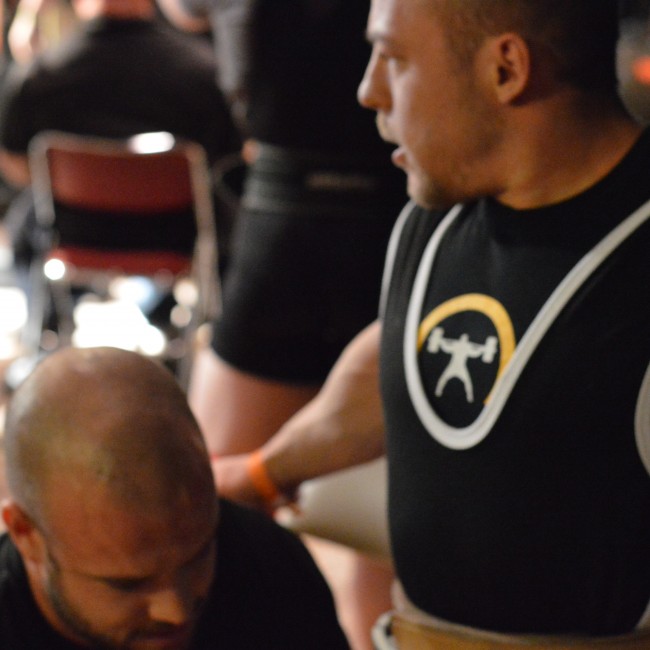
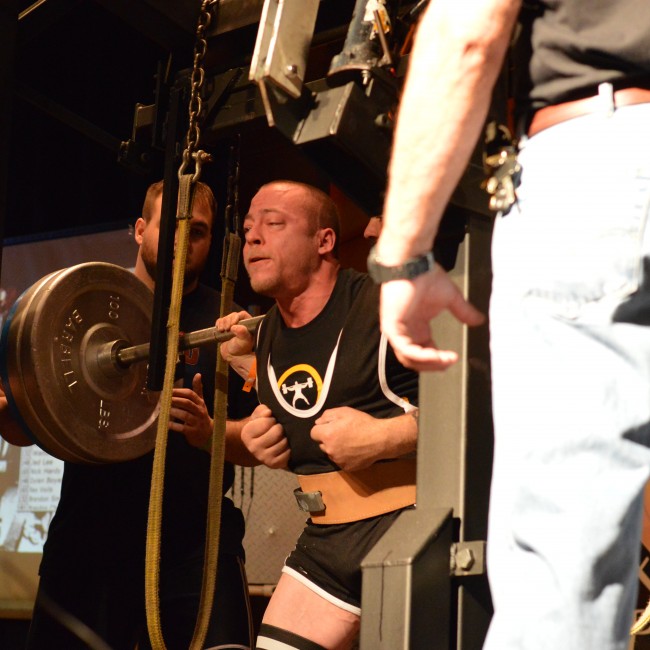
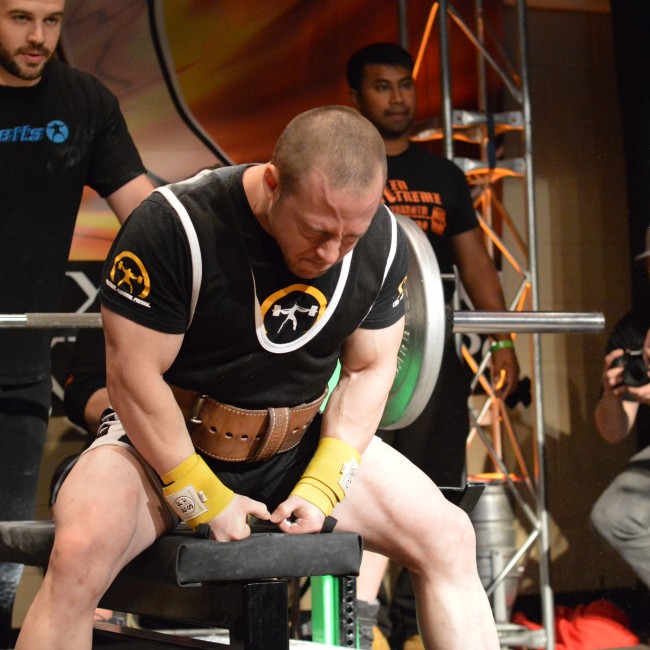
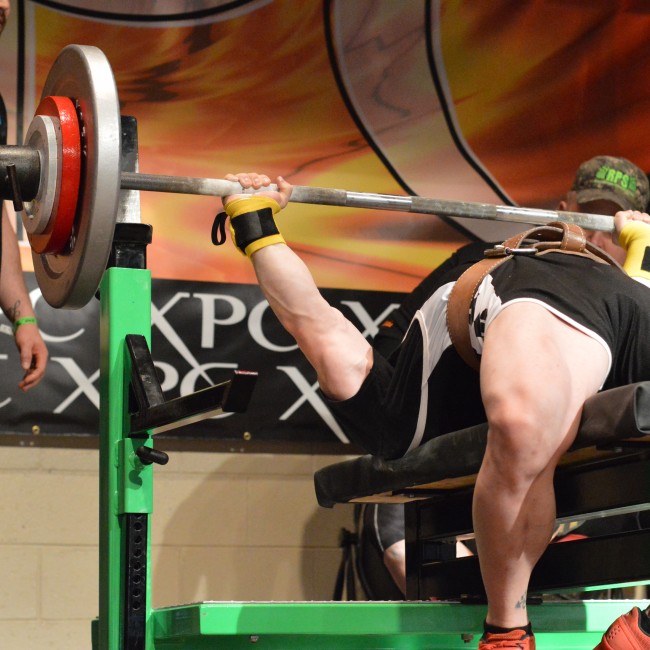
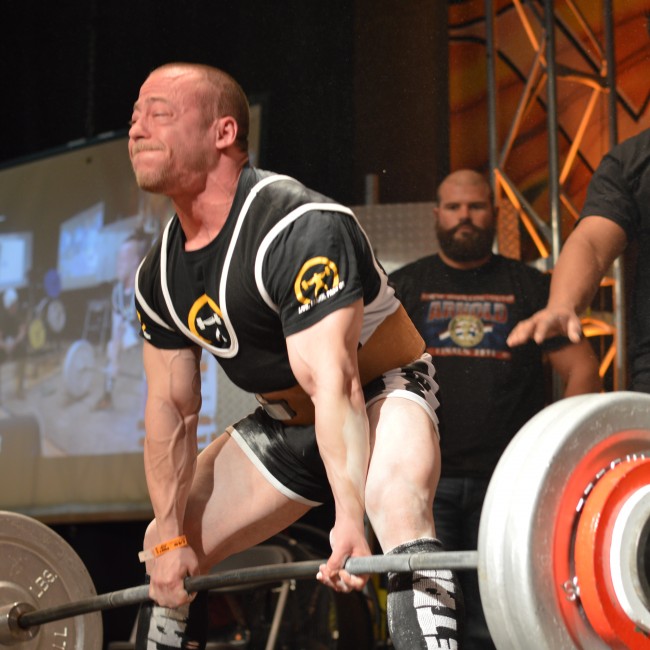

Have fun. Even going for your best, it is important to have fun. That meet is the reason why you worked so hard for so long. If you are there, you need to enjoy it. If you are having a good day, enjoy it even more. Having a little fun helps me at least.
I just think that if you are competing and you aren't having fun, you need to step away from the sport for a while. While it can be, and usually is highly competitive, if you are competing without truly having fun, I'm not really sure what one could get out of that. Powerlifting doesn't really employ anyone, so it's not a job.
But I would agree that having fun is huge. But it's always easier to have fun if you are doing well ;)
Well written and thought out article buddy!